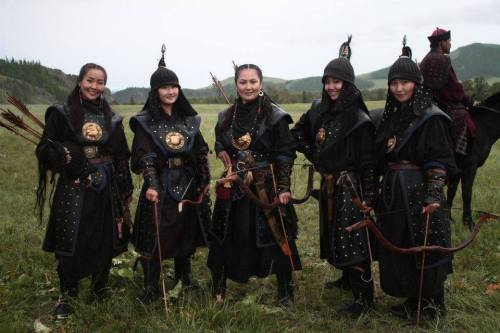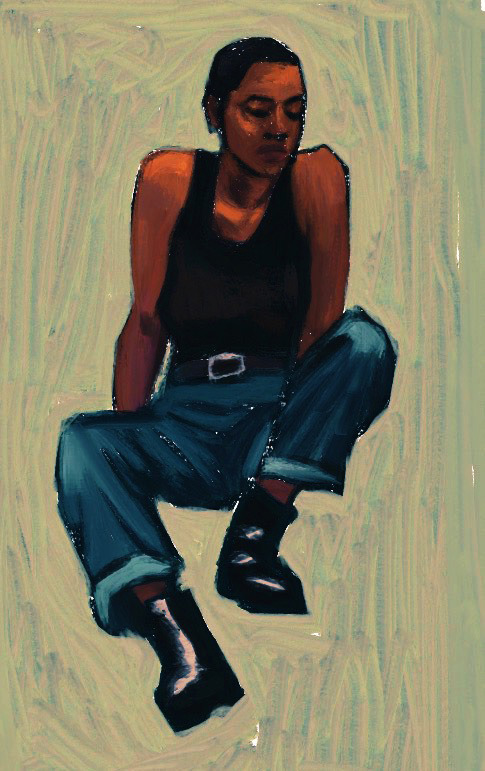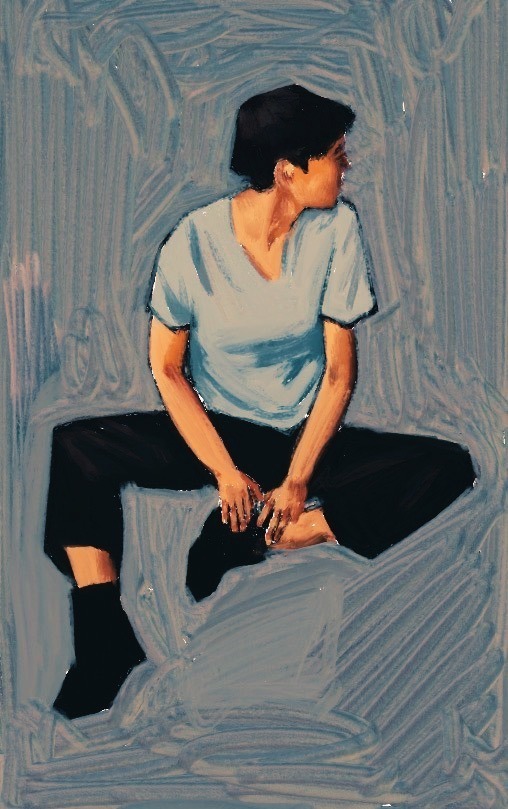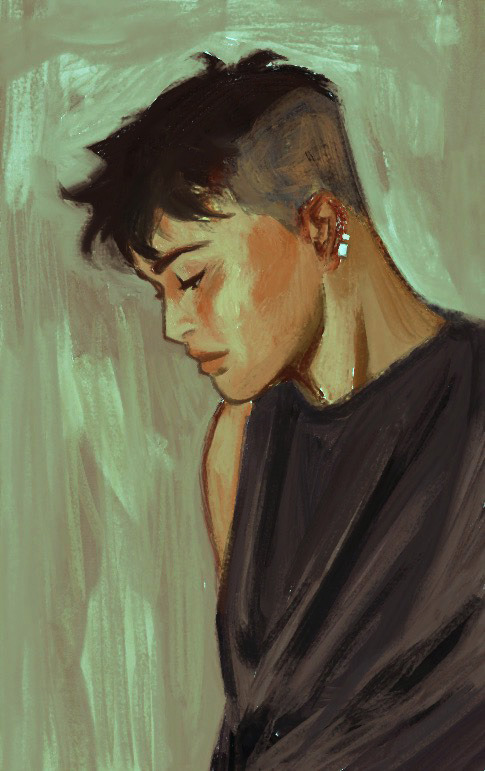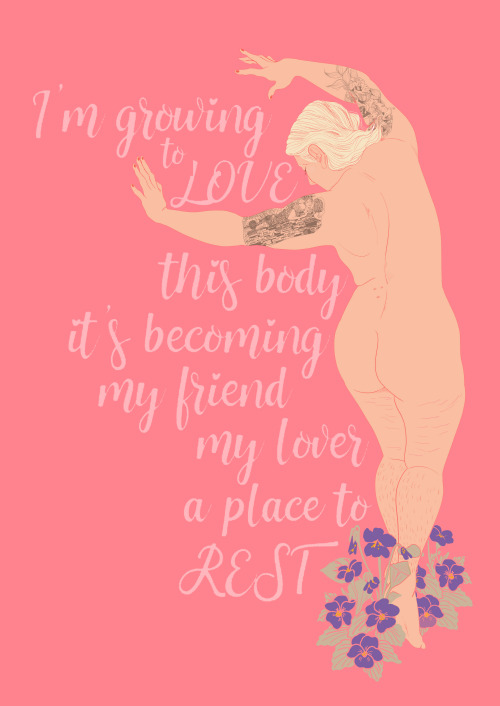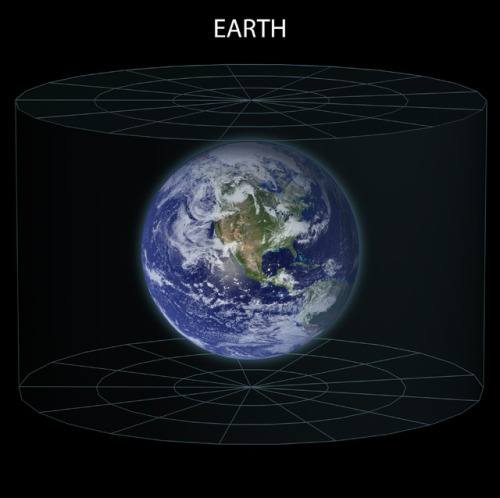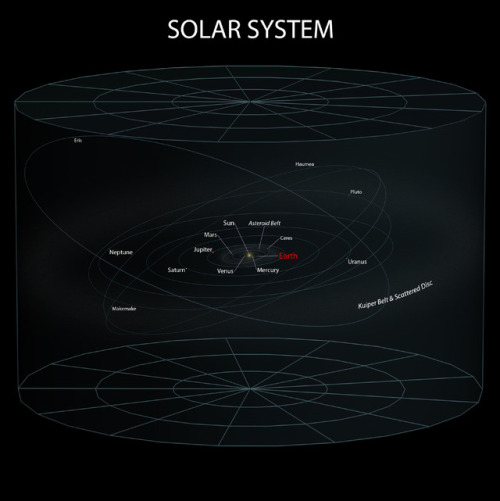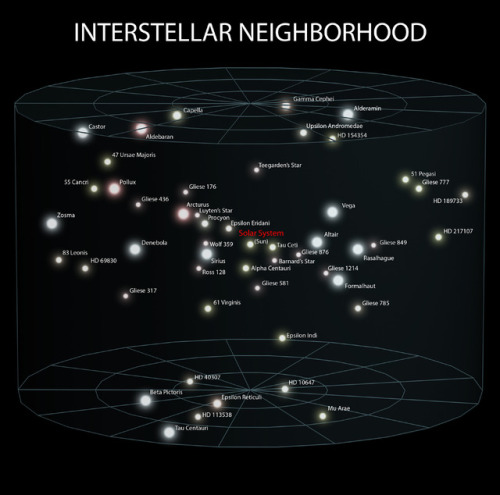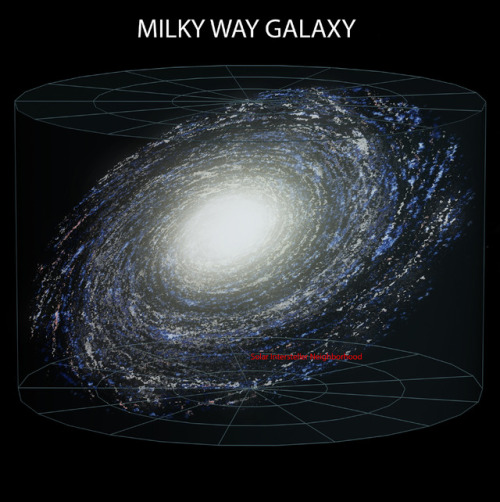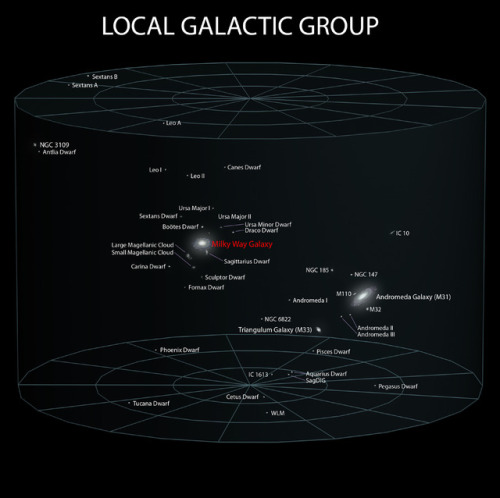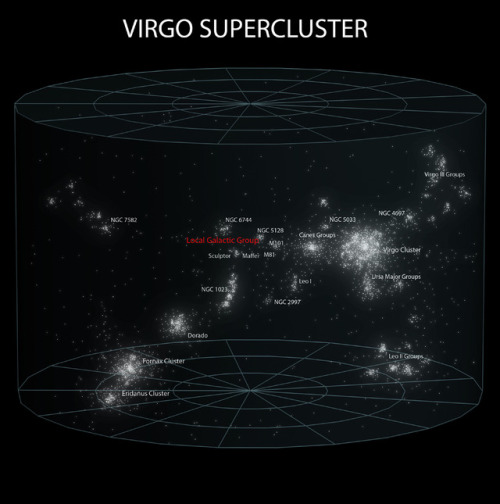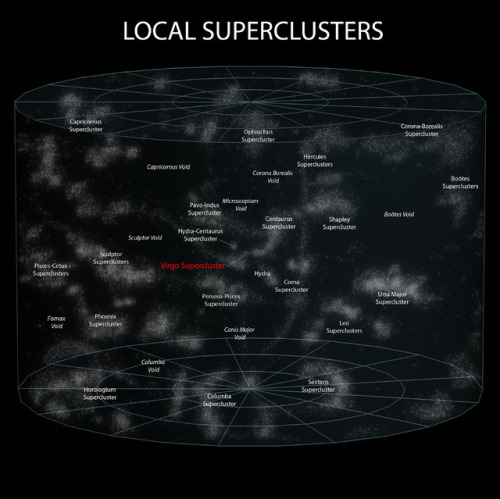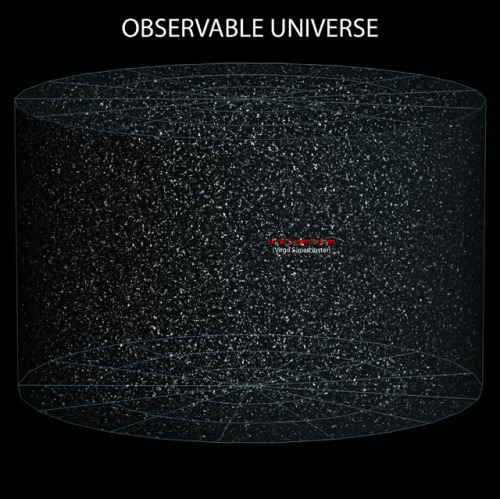Latest Posts by nyxs-knight - Page 8

NGC 2899
Astronomers at ESO’s VLT observatory have taken this stunning image of the planetary nebular NGC 2899.
The nebula is the result of a star that collapsed and formed a White Dwarf, expelling the gas outwards, and now is illuminated by the remnants of that star, irradiating the gas and causing it to glow.
Our sun will one day be a planetary nebula and a white dwarf.
Source : http://www.sci-news.com/astronomy/vlt-planetary-nebula-ngc-2899-08695.html
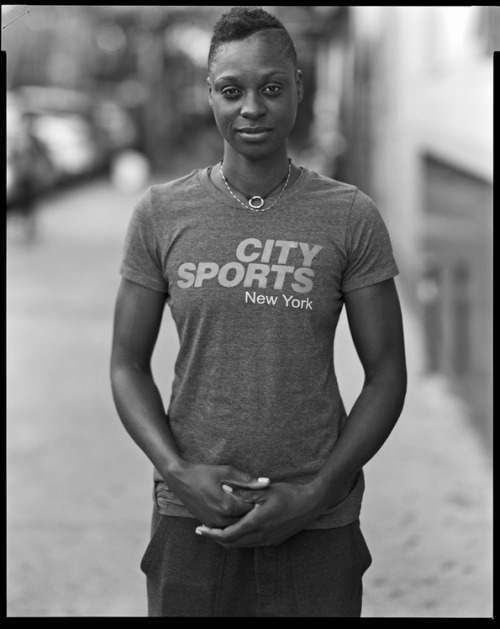
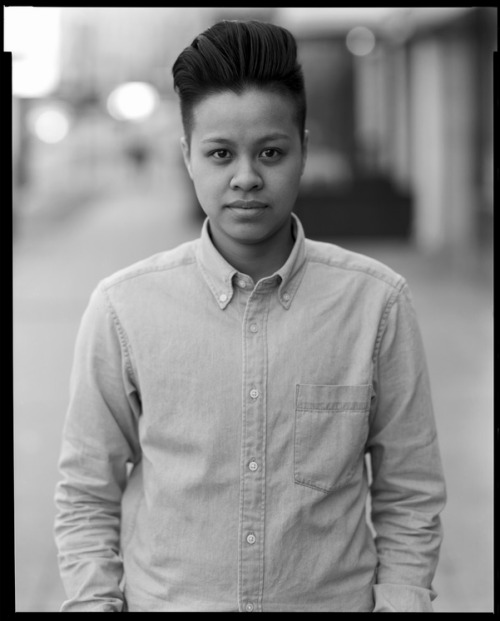
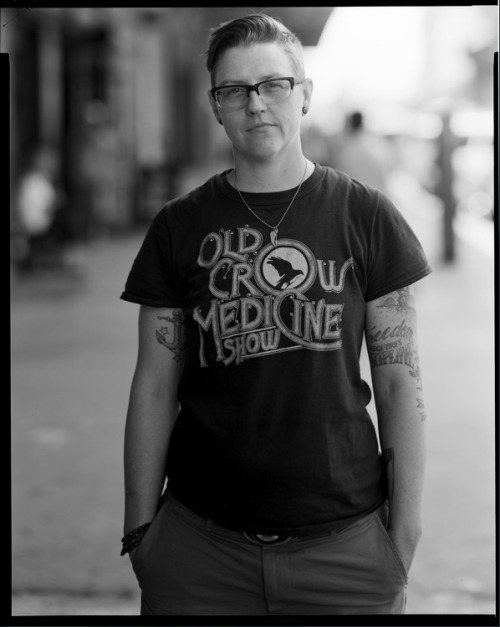
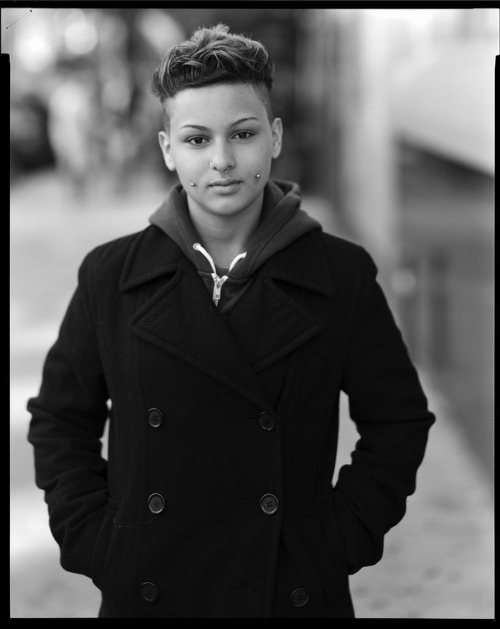
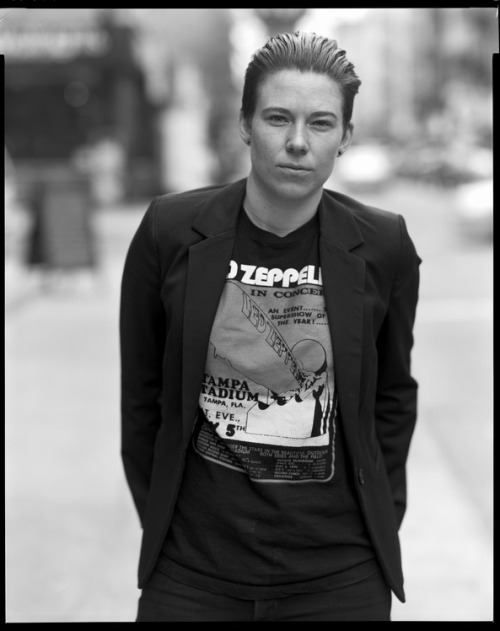
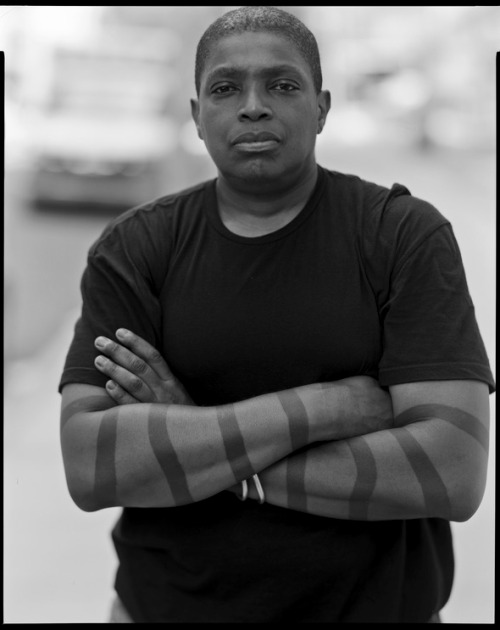
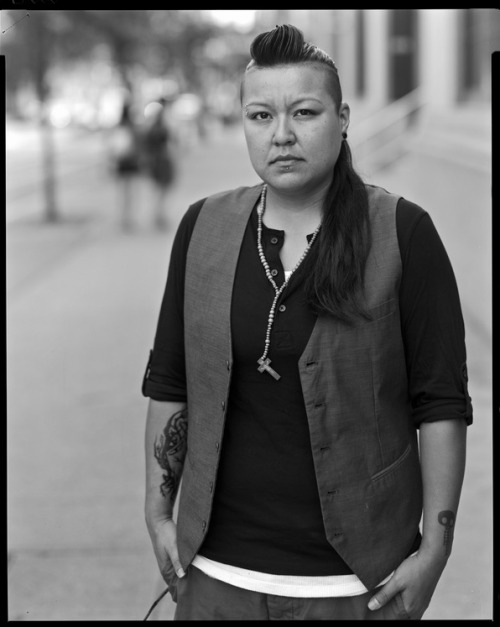
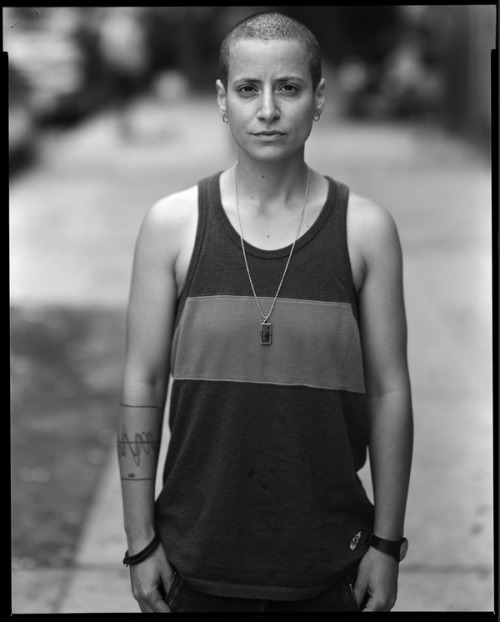
Robert Kalman, I Am Here: Lesbian Portraits, 2013 - 2015.










How To See Comet NEOWISE, Earth’s Most Spectacular Comet Since 2007
“From Earth, these comets typically appear brightest during closest approach. Bright, naked-eye comets are rare, with 1997’s Hale-Bopp serving as our most recent “great comet.” Since then, only 2007’s Comet McNaught was comparable, primarily to southern hemisphere observers. But in July of 2020, Comet NEOWISE will put on Earth’s greatest cometary show in 13 years. With a 6,800 year orbital period, it last appeared before the wheel was invented. On July 3, 2020, it reached perihelion, surviving a perilous encounter with the Sun.”
Most potentially exciting comets fizzle rather than sizzle, but Comet NEOWISE is looking to be an exception. On July 3, it passed its closest to the Sun, surviving the encounter and brightening significantly. Very close to the Sun right now from our perspective, it’s just about to transition from a pre-dawn to a post-sunset comet. You can easily see it with binoculars if you know where to look (images in the article), but it will continue to brighten until July 23, 2020, where it just might become the most spectacular comet in more than a decade.
Comet NEOWISE is already here, and now begins your chance to see it, particularly if you live in the northern hemisphere. Get out there and look!




some lesbian couple sketches from twitter :)
me age 12: oh god i missed a two millimeter spot of hair when i shaved i guess i’ll go to the beach in five layers of clothing so no one notices
me now: Hello friends it is i Bigfoot #confirmed
Girls with muscles is so attractive and anyone who says less don’t know shit

a lesbian comic depicting butch women, 1994
i’ve been saying this to myself this morning and i’m going to say it to you in case you need to hear it: you are not here to be physically attractive. that is not your purpose. you are here to learn new things and be kind to people and listen to your favorite music and pet cute dogs and read big books and drink good coffee. you are here to see beauty in the world and create it when you can’t find any. you are not here to impress people with how you look.
Protect weird girls. Ya know…. the ones that used to make up intricate games on the playground about ghosts and saving the world. The ones that used to have a whole BOX of fucking rolly pollies and worms. Those girls that used to have mason jars FULL of fucking god knows WHAT on their mother’s back porch. Protect… girls. Girls that daydream too much. Girls that could go out to Walmart dressed in cow girl boots, and a faux fur coat. Girls that invent whole other worlds in their heads. Girls that love too much. Girls that don’t love quite enough. Girls that don’t look, or sound the way society expects them to. Loud girls. Quiet girls. Angry girls. Sad girls. Support girls being themselves, and being unapologetic about it. The ones that get labeled “weird” for simply existing and being brave enough to not dim themselves down, just because society tells them, too. The girls that never lost their magic once they grew up. Support weird girls.

Ilustración: Peer Jongeling (IG)
[Traducción propia]
No porque no exprese la feminidad (hegemónica) significa que soy menos mujer.
Ilustración original:

big muscle lesbians you are so fucking valid
I saw a post a few days ago that inspired this, but I couldn’t find it again so ¯\_(ツ)_/¯
Anyways, daily reminder to love your body and boop your body dimples/cellulite dimples while you’re at it.


Shapley 1 Nebula
This symmetrical nebula is 8700 years old and surrounds a binary star system. It bears resemblance to a smoke ring, but with a diameter of roughly two light years, it is much larger than any you would see on Earth.
Image credit: NASA
Women In History
I grew up believing that women had contributed nothing to the world until the 1960′s. So once I became a feminist I started collecting information on women in history, and here’s my collection so far, in no particular order.

Lepa Svetozara Radić (1925–1943) was a partisan executed at the age of 17 for shooting at German soldiers during WW2. As her captors tied the noose around her neck, they offered her a way out of the gallows by revealing her comrades and leaders identities. She responded that she was not a traitor to her people and they would reveal themselves when they avenged her death. She was the youngest winner of the Order of the People’s Hero of Yugoslavia, awarded in 1951
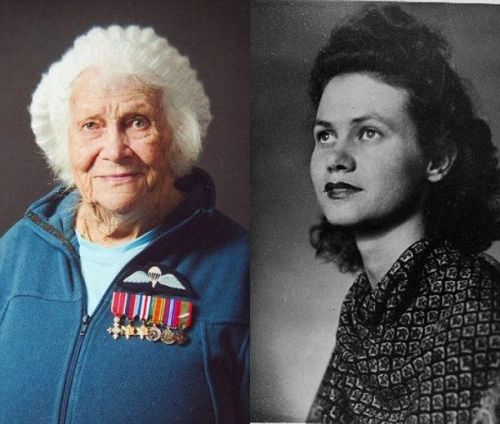
23 year old Phyllis Latour Doyle was British spy who parachuted into occupied Normandy in 1944 on a reconnaissance mission in preparation for D-day. She relayed 135 secret messages before France was finally liberated.
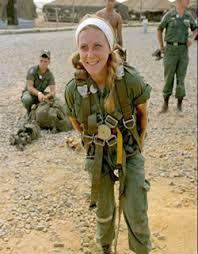
Catherine Leroy, War Photographer starting with the Vietnam war. She was taken a prisoner of war. When released she continued to be a war photographer until her death in 2006.

Lieutenant Pavlichenko was a Ukrainian sniper in WWII, with a total of 309 kills, including 36 enemy snipers. After being wounded, she toured the US to promote friendship between the two countries, and was called ‘fat’ by one of her interviewers, which she found rather amusing.
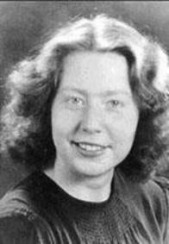
Johanna Hannie “Jannetje” Schaft was born in Haarlem. She studied in Amsterdam had many Jewish friends. During WWII she aided many people who were hiding from the Germans and began working in resistance movements. She helped to assassinate two nazis. She was later captured and executed. Her last words were “I shoot better than you.”.
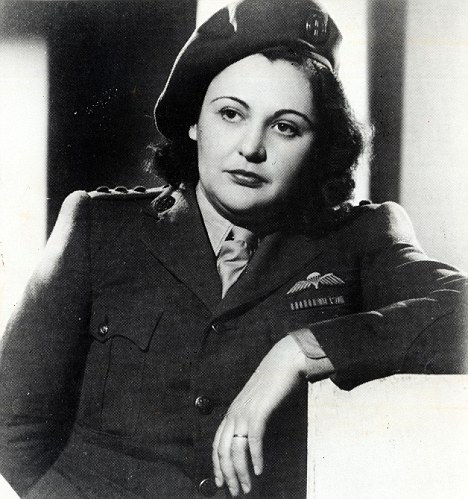
Nancy wake was a resistance spy in WWII, and was so hated by the Germans that at one point she was their most wanted person with a price of 5 million francs on her head. During one of her missions, while parachuting into occupied France, her parachute became tangled in a tree. A french agent commented that he wished that all trees would bear such beautiful fruit, to which she replied “Don’t give me any of that French shit!”, and later that evening she killed a German sentry with her bare hands.
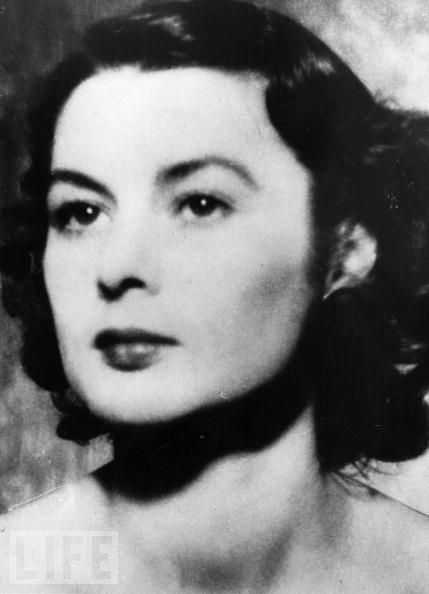
After her husband was killed in WWII, Violette Szabo began working for the resistance. In her work, she helped to sabotage a railroad and passed along secret information. She was captured and executed at a concentration camp at age 23.

Grace Hopper was a computer scientist who invented the first ever compiler. Her invention makes every single computer program you use possible.

Mona Louise Parsons was a member of an informal resistance group in the Netherlands during WWII. After her resistance network was infiltrated, she was captured and was the first Canadian woman to be imprisoned by the Nazis. She was originally sentenced to death by firing squad, but the sentence was lowered to hard lard labor in a prison camp. She escaped.
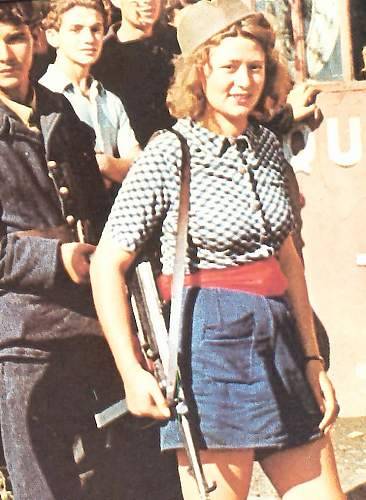
Simone Segouin was a Parisian rebel who killed an unknown number of Germans and captured 25 with the aid of her submachine gun. She was present at the liberation of Paris and was later awarded the ‘croix de guerre’.
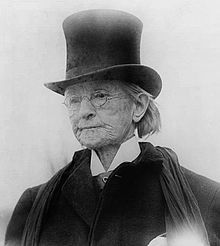
Mary Edwards Walker is the only woman to have ever won an American Medal of Honor. She earned it for her work as a surgeon during the Civil War. It was revoked in 1917, but she wore it until hear death two years later. It was restored posthumously.
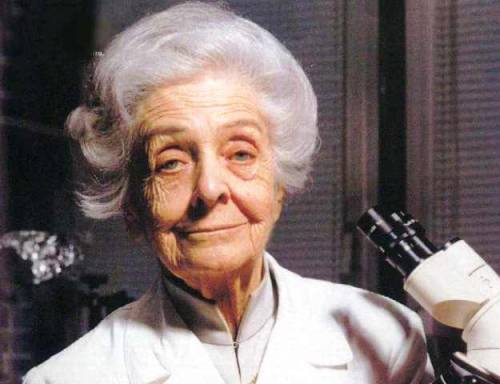
Italian neuroscientist won a Nobel Prize for her discovery of nerve growth factor. She died aged 103.
EDIT
jinxedinks added: Her name was Rita Levi-Montalcini. She was jewish, and so from 1938 until the end of the fascist regime in Italy she was forbidden from working at university. She set up a makeshift lab in her bedroom and continued with her research throughout the war.
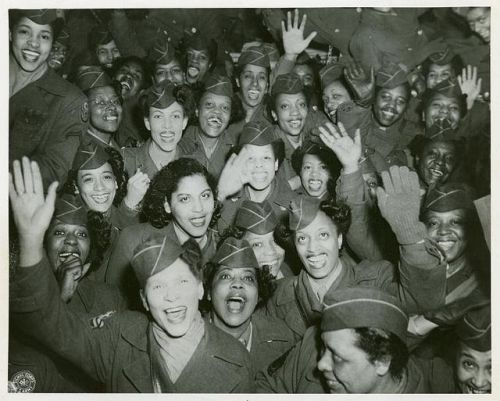
A snapshot of the women of color in the woman’s army corps on Staten Island
This is an ongoing project of mine, and I’ll update this as much as I can (It’s not all WWII stuff, I’ve got separate folders for separate achievements).
File this under: The History I Wish I’d Been Taught As A Little Girl
Celebrating Women’s History Month: Most Recent Female Astronauts
For Women’s History Month, NASA and the International Space Station celebrate the women who conduct science aboard the orbiting lab. As of March 2019, 63 women have flown in space, including cosmonauts, astronauts, payload specialists, and space station participants. The first woman in space was Russian cosmonaut Valentina Tereshkova who flew on Vostok 6 on June 16, 1963. The first American woman in space, Sally Ride, flew aboard the Space Shuttle STS-7 in June of 1983.
If conducted as planned, the upcoming March 29 spacewalk with Anne McClain and Christina Koch would be the first all-female spacewalk. Women have participated in science on the space station since 2001; here are the most recent and some highlights from their scientific work:
Christina Koch, Expedition 59

Christina Koch (pictured on the right) becomes the most recent woman in space, launching to the space station in mid-March to take part in some 250 research investigations and technology demonstrations. Koch served as station chief of the American Samoa Observatory and has contributed to the development of instruments used to study radiation particles for the Juno mission and the Van Allen Probe.
Anne McClain, Expedition 57/58, 59

Flight Engineer Anne McClain collects samples for Marrow, a long-term investigation into the negative effects of microgravity on the bone marrow and blood cells it produces. The investigation may lead to development of strategies to help prevent these effects in future space explorers, as well as people on Earth who experience prolonged bed rest. McClain holds the rank of Lieutenant Colonel as an Army Aviator, with more than 2,000 flight hours in 20 different aircraft.
Serena M. Auñón-Chancellor, Expedition 56/57

Serena Auñón-Chancellor conducts research operations for the AngieX Cancer Therapy inside the Microgravity Science Glovebox (MSG). This research may facilitate a cost-effective drug testing method and help develop safer and more effective vascular-targeted treatments. As a NASA Flight Surgeon, Auñón-Chancellor spent more than nine months in Russia supporting medical operations for International Space Station crew members.
Peggy Whitson, Expeditions 5, 16, 50, 51/52

Astronaut Peggy Whitson holds numerous spaceflight records, including the U.S. record for cumulative time in space – 665 days – and the longest time for a woman in space during a single mission, 289 days. She has tied the record for the most spacewalks for any U.S. astronaut and holds the record for the most spacewalk time for female space travelers. She also served as the first science officer aboard the space station and the first woman to be station commander on two different missions. During her time on Earth, she also is the only woman to serve as chief of the astronaut office. Here she works on the Genes in Space-3 experiment, which completed the first-ever sample-to-sequence process entirely aboard the International Space Station. This innovation makes it possible to identify microbes in real time without having to send samples back to Earth, a revolutionary step for microbiology and space exploration.
Kate Rubins, Expedition 48/49

The Heart Cells investigation studies the human heart, specifically how heart muscle tissue contracts, grows and changes its gene expression in microgravity and how those changes vary between subjects. In this image, NASA astronaut Kate Rubins conducts experiment operations in the U.S. National Laboratory. Rubins also successfully sequenced DNA in microgravity for the first time as part of the Biomolecule Sequencer experiment.
Samantha Cristoforetti, Expedition 42/43

The first Italian woman in space, European Space Agency (ESA) astronaut Samantha Cristoforetti conducts the SPHERES-Vertigo investigation in the Japanese Experiment Module (JEM). The investigation uses free-flying satellites to demonstrate and test technologies for visual inspection and navigation in a complex environment.
Elena Serova, Expedition 41/42

Cosmonaut Elena Serova, the first Russian woman to visit the space station, works with the bioscience experiment ASEPTIC in the Russian Glavboks (Glovebox). The investigation assessed the reliability and efficiency of methods and equipment for assuring aseptic or sterile conditions for biological investigations performed on the space station.
Karen Nyberg, Expedition 36/37

NASA astronaut Karen Nyberg sets up the Multi-Purpose Small Payload Rack (MSPR) fluorescence microscope in the space station’s Kibo laboratory. The MSPR has two workspaces and a table used for a wide variety of microgravity science investigations and educational activities.
Sunita Williams, Expeditions 32/33, 14/15

This spacewalk by NASA astronaut Sunita Williams and Japan Aerospace Exploration Agency (JAXA) astronaut Aki Hoshide, reflected in Williams’ helmet visor, lasted six hours and 28 minutes. They completed installation of a main bus switching unit (MBSU) and installed a camera on the International Space Station’s robotic Canadarm2. Williams participated in seven spacewalks and was the second woman ever to be commander of the space station. She also is the only person ever to have run a marathon while in space. She flew in both the space shuttle and Soyuz, and her next assignment is to fly a new spacecraft: the Boeing CST-100 Starliner during its first operational mission for NASA’s Commercial Crew Program.
Cady Coleman, Expeditions 26/27

Working on the Capillary Flow Experiment (CFE), NASA astronaut Catherine (Cady) Coleman performs a Corner Flow 2 (ICF-2) test. CFE observes the flow of fluid in microgravity, in particular capillary or wicking behavior. As a participant in physiological and equipment studies for the Armstrong Aeromedical Laboratory, she set several endurance and tolerance records. Coleman logged more than 4,330 total hours in space aboard the Space Shuttle Columbia and the space station.
Tracy Caldwell Dyson, Expedition 24

A system to purify water for use in intravenous administration of saline would make it possible to better treat ill or injured crew members on future long-duration space missions. The IVGEN investigation demonstrates hardware to provide that capability. Tracy Caldwell Dyson sets up the experiment hardware in the station’s Microgravity Science Glovebox (MSG). As noted above, she and Shannon Walker were part of the first space station crew with more than one woman.
Shannon Walker, Expedition 24/25

Astronaut Shannon Walker flew on Expedition 24/25, a long-duration mission that lasted 163 days. Here she works at the Cell Biology Experiment Facility (CBEF), an incubator with an artificial gravity generator used in various life science experiments, such as cultivating cells and plants on the space station. She began working in the space station program in the area of robotics integration, worked on avionics integration and on-orbit integrated problem-solving for the space station in Russia, and served as deputy and then acting manager of the On-Orbit Engineering Office at NASA prior to selection as an astronaut candidate.
Stephanie Wilson, STS-120, STS-121, STS-131

Astronaut Stephanie Wilson unpacks a Microgravity Experiment Research Locker Incubator II (MERLIN) in the Japanese Experiment Module (JEM). Part of the Cold Stowage Fleet of hardware, MERLIN provides a thermally controlled environment for scientific experiments and cold stowage for transporting samples to and from the space station. Currently serving as branch chief for crew mission support in the Astronaut Office, Wilson logged more than 42 days in space on three missions on the space shuttle, part of the Space Transportation System (STS).
Other notable firsts:
• Roscosmos cosmonaut Svetlana Savitskaya, the first woman to participate in an extra-vehicular activity (EVA), or spacewalk, on July 25, 1984
• NASA astronaut Susan Helms, the first female crew member aboard the space station, a member of Expedition 2 from March to August 2001
• NASA astronaut Peggy Whitson, the first female ISS Commander, April 2008, during a six-month tour of duty on Expedition 16
• The most women in space at one time (four) happened in 2010, when space shuttle Discovery visited the space station for the STS-131 mission. Discovery’s crew of seven included NASA astronauts Dorothy Metcalf-Lindenburger and Stephanie Wilson and Japan Aerospace Exploration Agency (JAXA) astronaut Naoko Yamazaki. The space station crew of six included NASA astronaut Tracy Caldwell Dyson.
• Susan Helms shares the record for longest single spacewalk, totaling 8 hours 56 minutes with fellow NASA astronaut Jim Voss.
• Expedition 24 marked the first with two women, NASA astronauts Shannon Walker and Tracy Caldwell Dyson, assigned to a space station mission from April to September, 2010
• The 2013 astronaut class is the first with equal numbers of women and men.
• NASA astronaut Anne McClain became the first woman to live aboard the space station as part of two different crews with other women: Serena Auñón-Chancellor in December 2018 and currently in orbit with Christina Koch.
Make sure to follow us on Tumblr for your regular dose of space: http://nasa.tumblr.com



The Tarantula Nebula
You can never escape creepy crawly spiders, not even in the endless vacuum of space. One hundred and eighty thousand light-years away, the Tarantula Nebula is waiting for you to fall into its starry web.
Image Credit: NASA

Hubble Ultra Deep Field
The Hubble Space Telescope has taken many spectacular pictures over the years, but this is one of its most well known images. It shows about 10,000 galaxies, some of which are nearly as old as the universe itself.
Image Credit: NASA









Welcome Home: The Michigan Womyn’s Music Festival by Angela Jimenez

